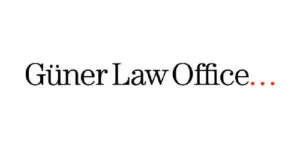- in European Union
1. Background And Current Legislation
In parallel with the rapid growth in the Turkish insurance sector, there have been major changes to the Turkish insurance legislation in the last few years. The Insurance Supervision Law which regulated insurance activities for 47 years has been replaced with Insurance Law No. 5684 (the Insurance Law) in 3 June 2007. In addition to the Insurance Law, there are specific pieces of legislation regulating the activities of individual professions in insurance industry (e.g. brokers, loss adjusters, etc.) and different types of insurance (e.g. life insurance, reinsurance, etc.).
The principal piece of legislation regulating insurance contracts in Turkey is the Turkish Commercial Code (the TCC). Article 1263 of the TCC defines an insurance contract as follows:
"an insurance contract is a contract, by which one party, the insurer, in exchange for the payment of a premium, assumes:
- a risk(s) associated with the interests of another party, the insured, and in the event that damage is caused to the insured's interest by an assumed risk, the insurer will compensate such damage; or
- the responsibility for making a payment or taking some other action in the event of one or more persons' death or as a result of some incident taking place in their lives."
Under Turkish law, insurance and reinsurance activities in Turkey can be conducted by (i) Turkish joint stock companies or cooperative companies (mutual insurance companies); and (ii) licensed Turkish branches of foreign insurance and reinsurance companies. In order to operate, these companies must obtain a permit from the General Directorate of Insurance (the Directorate).
Notwithstanding the above, share transfers of insurance/reinsurance companies exceeding certain percentages or effecting the management or audit of such companies are subject to a permit from the Directorate. Also, any merger, asset and liability transfer, and portfolio transfer of insurance/reinsurance companies are subject to a permit from the Minister to which the Directorate is related.
2. Compulsory Insurance
According to Article 13 of the Insurance Law, the Council of Ministers is authorised to introduce new compulsory insurance types; in other words, can make it compulsory for a person to insure certain risks. New compulsory insurance types may also be introduced by new legislation.
Below is a list of several compulsory insurance types:
- highway motor vehicle third party financial liability insurance (see the Highway Traffic Law dated 13 October 1983, numbered 2918) (Green Card Vehicle Insurance is also valid in Turkey);
- bus seat personal accident insurance (see the Regulation on Overland Transportation published in the Official Gazette dated 25 February 2004, numbered 25384), which is an industry specific insurance covering passengers and personnel;
- passenger transportation liability insurance (Overland Transportation Law dated 10 July 2003, numbered 4925);
- dangerous materials liability insurance (see the Council of Ministers decision dated 14 September 1991, numbered 91/2253 and), which includes all aspects of handling dangerous materials including their sale, storage, transport, etc;
- bottled gas liability insurance (see the Council of Ministers decision dated 14 September 1991, numbered 91/2253), which covers all aspects of the bottled gas industry including manufacturers and retailers but not individual purchasers;
- earthquake insurance (see the Decree in the Force of Law regarding Earthquake Insurance dated 25 November 1999, numbered 587);
- insurance for goods that are subject to Finance Leasing (see the Finance Leasing Law dated 10 June 1985, numbered 3226);
- insurance for possible losses arising from transportation agreements and third party liabilities (see the Civil Aviation Law dated 14 October 1983, numbered 2920);
- professional liability insurance for insurance and reinsurance brokers (see the Regulation on Insurance and Reinsurance Brokers published in the official Gazette dated 21 June 2008, numbered 26913);
- P&I Policy for ships carrying dangerous cargo passing through the Turkish Straits (see Article 12 of the Turkish Straits Directive);
- workers' compensation insurance is compulsory for all employees but can only be provided by the State. Notwithstanding, an employer may additionally seek private insurance coverage from insurance companies.
3. Foreign Participation In Insurance
Article 15 of the Insurance Law provides that a real person or legal entity located in Turkey must insure its local risks in Turkey by a Turkish insurance company/cooperative or a Turkish branch of a foreign insurance company.
Article 15 lists several exceptions to the above principle stating that the types of insurance specified below can be provided by foreign insurers:
- transportation insurance for goods that are being exported or imported;
- hull insurance for aircraft (planes/helicopters) and vessels (that are bought using foreign credit, until all accrued credit payments are paid; or in the event that they are acquired from abroad by way of financial leasing, until the lease financing is terminated. Such insurance shall be limited to the amount of financing acquired from abroad);
- liability insurance for operation of vessels;
- life insurance; and
- personal accident, disease, health and motor vehicle insurance taken out by Turkish residents when they are abroad.
Moreover, according to Article 15 of the Insurance Law, the Council of Ministers may introduce new types of insurance that foreign insurers can provide. The Council of Ministers resolved in its decision dated 24.12.2007, numbered 2007/13028 that the liability insurances determined by the Directorate may also be effected by foreign insurers. Accordingly, the Directorate stated in the Sector Announcement dated 11.01.2008, numbered 2008/4 that the liability insurance relating to clinical pharmaceuticals researches introduced by the Ministry of Health as compulsory insurance may also be provided by foreign insurers.
According to the Council of Ministers decision on international activities in the insurance sector (dated 6 July 2007, numbered 2007/12467), foreign loss adjusters may operate in Turkey on the basis of reciprocity between the relevant country and Turkey, excluding persons foreign reinsurance companies will assign to operate in Turkey in relation to reinsurance agreements. In addition, provisions related to Turkish loss adjusters will also be applicable to the foreign loss adjusters operating in Turkey.
The same decision states that (i) a foreign real person insurance agency may operate in Turkey provided that he/she is a resident in Turkey; and (ii) a foreign insurance agency which is a legal entity may operate in Turkey provided that it has established a branch in Turkey. These foreign insurance agencies operating in Turkey may only act on behalf and on account of the insurance companies operating in Turkey and cannot act as intermediaries for insurance companies established abroad. Foreign insurance agencies operating in Turkey are subject to the same provisions as the insurance agencies established in Turkey.
4. The Parties Involved In An Insurance Transaction
In Turkey, insurance intermediaries (e.g. insurance brokers, insurance agencies, loss adjusters, etc.) can operate in compliance with the relevant legislation.
An insurance broker is a person (i) conducting preparatory work before an insurance or reinsurance agreement is effected; (ii) assisting in the execution of such agreements; and (iii) assisting in the collection of a claim. An insurance broker acts on behalf of the ones who wish to enter into an insurance or reinsurance agreement and takes into consideration the rights and interests of the insured. Therefore, an insurance broker should act impartially and independently while choosing the insurance company with which an agreement will be entered. Accordingly, an insurance broker should not enter into an agreement with insurance or reinsurance companies. The Insurance Law and the Regulation on Insurance and Reinsurance Brokers dated 26 January 2008, numbered 26913 prescribe a number of conditions to be fulfilled by a real person/legal entity to act as an insurance broker in Turkey.
Insurance agencies have a very similar role to that of brokers, but act on behalf of and in favour of specific insurance companies according to the terms of an agreement between the agency and the insurance company. The agency will act either as an agent for the insurance company on the insurance companies account or on behalf of an insurance company entering into agreements binding the insurance company.
Loss adjusters determine the reasons and amount of a loss/damage arising from an insured risk. A loss adjuster impartially and independently conducts agreed value assessments and preliminary expert analysis and verifies the amount of any damage. According to the Insurance Law, a loss adjuster should always act impartially and not be related/connected to an insurer or reinsurer (or any relevant party) in any way.
Foreign insurers must work with loss adjusters registered with the Loss Adjusters Registry in Turkey.
Guner Law Office was established in 1996 and has since grown into one of the major corporate, M&A, banking, litigation, energy and TMT practices in Turkey. Guner Law Office is headed by Ece Guner and works with international law firm Denton Wilde Sapte.
The content of this article is intended to provide a general guide to the subject matter. Specialist advice should be sought about your specific circumstances.


